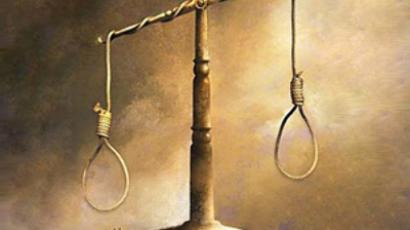New Russian human rights chief appointed
President Dmitry Medvedev has appointed Mikhail Fedotov as a presidential adviser and the chairman of the Presidential Council for the Promotion of Civil Society Institutions and Human Rights.
A respective decree was signed on Tuesday and came into effect upon signing, the Kremlin press service reports.
Fedotov, 61 – a lawyer and the secretary of the Russian Union of Journalists – will replace Ella Pamfilova in the post of chief of the top Kremlin human rights watchdog. On July 30, after heading the council since 2004, Pamfilova filed a resignation letter, which was accepted by the President. However, her replacement has only just been appointed.
The new human rights chief has already outlined the key tasks for the council.
“There are three priority issues: de-Stalinization of social consciousness, court and police reforms, as well as issues related to the protection of family and children’s rights,” Fedotov told Interfax news agency. He noted that proposals on the issues are almost ready and said that he expects them to be submitted to the president by the end of this year.
The council plans to hold its first meeting next week. Prior to that, Fedotov will set off for his last business trip as the Journalists’ Union secretary: according to the law, becoming a state servant he will have to leave that post.
Russian human rights activists and opposition leaders have welcomed the decision to pick Fedotov for the job.Mikhail Fedotov
-Born on September 18, 1949 in Moscow
- In 1972, graduated from Moscow State University
- 1990-1992, deputy Minister of Press and Information
- 1992-1993, Minister of Press and Information
- 1993-1998, Russia’s permanent representative to UNESCO
- 1998 –until present, Secretary of the Union of Journalists
- Expert, TACIS Program on Intellectual Property
- Member, UNESCO International Advisory Council on World Culture
- Doctor of Law, Professor
- Author of over 100 books and articles on human rights and constitutionalism, intellectual property and international humanitarian cooperation
- Married, has two children
The head of Moscow's Helsinki Group, Lyudmila Alekseeva, said she thinks civil society will react positively to the news.
“Fedotov suits me. He is a person of firm democratic principles," she told Interfax. She also expressed confidence that they “will find common ground with Fedotov”. Alekseeva recalled that Fedotov was one of the authors of the law on the media “which is not being observed, but has not been completely spoiled.”
"Fedotov is a good appointment for this extremely difficult post between two almost incompatible worlds – the world of civil servants and the world of the democratic public," she is quoted as saying.
Russia's human rights ombudsman, Vladimir Lukin, also praised the choice, saying that Mikhail Fedotov is undoubtedly a person of democratic beliefs. According to the ombudsman, Fedotov will manage to unite “very independently-thinking people, members of the Presidential Council.” He said it will make them aim for their main goal – coming up with proposals on “the modernization of civil society, political structure and human rights protection”.
Lukin noted that Fedotov “has got experience in social work, state service and diplomatic work – he used to be Russia’s ambassador to UNESCO [United Nations Educational, Scientific and Cultural Organization].” And wherever he worked, Lukin pointed out, Fedotov demonstrated professionalism as well as excellent managerial qualities.













